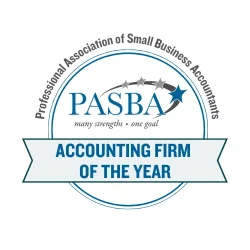Explore the ins and outs of estate tax exemption. Discover how J.R. Martin can help you develop a comprehensive tax strategy for your business.
Estate Tax Exemption: Understanding The Taxing Threshold
As a business owner, understanding the implications of estate tax exemption is crucial in managing your assets and planning for the future. Estate tax exemption is the amount of money or property that can be passed onto your beneficiaries without being subject to federal estate taxes. This threshold changes each year due to inflation adjustments, making it important to stay informed on the current limits.
What Is An Estate Tax?
An estate tax is a tax on the transfer of property from a deceased individual to their beneficiaries. In the United States, this tax is imposed at the federal level and varies depending on the estate’s value. The estate tax has been around since July 1, 1862, when the U.S. Congress passed a law regarding “legacies or distributive shares” of personal property that would be subject to taxation when passing on to beneficiaries through wills or intestacy. However, it wasn’t until 1916 that the U.S. Government implemented it as a way to generate revenue. At that time, the exemption amount was set at $50,000 and only applied to estates of a certain size.
Over the years, there have been many changes to estate tax laws and exemption amounts, making it necessary for business owners to stay up-to-date to plan their taxes effectively. If you don’t have a solid understanding of estate tax exemption, you may end up paying more in taxes than necessary.
The Current Estate Tax Rates
The current estate tax rates are determined by the federal government and can change each year. As of 2023, the exemption amount is set at $12.92 million per individual or $25.84 million for married couples. If your estate is valued below these amounts, it will not be subject to federal estate taxes.
However, it’s important to note that these exemption amounts are subject to change. In 2024, the exemption amount is $13.61 million for a single person and $27.22 million for married couples. This increase is due to indexing for inflation. Planning and staying informed on these changes is essential to make the most of your estate tax exemption.
The current estate tax rate is based on the amount that exceeds the exemption thresholds. The estate tax rate is currently between 18 and 40%. For example, if the taxable amount is more than 0 but less than $10,000, the tax rate is 18%. Anything over $1 million is taxed at 40%.
How Estate Tax Affects Beneficiaries
When an estate is subject to federal taxes, the amount owed will be deducted from the total value of the estate before it can be passed onto beneficiaries. This means that a significant portion of the inheritance may go towards paying estate taxes, leaving heirs with less than expected.
Additionally, if heirs are unprepared for potential estate tax expenses, they may face financial challenges or even have to sell assets to pay the taxes owed. This can also result in disputes and disagreements amongst family members, causing added stress during an already difficult time.
This can be particularly problematic if the estate comes in the form of a business. Heirs may have to sell a portion of the business or take out loans to cover estate taxes, potentially disrupting the operations and success of the company.
Exemptions From Estate Tax
Certain exemptions from federal estate taxes can apply to businesses and business owners. These include the Qualified Family-Owned Business Interest (QFOBI) deduction, which allows for a reduction of up to $1.5 million in estate tax for qualified family-owned businesses. The following criteria must be met to qualify for this deduction:
- The decedent must have been a citizen or resident of the United States, and the business must be located in the U.S. to qualify for this exemption. This ensures that both the deceased individual and their business had ties to the U.S.
- The owner of the business who has passed away, or their family members, must have been actively involved in the operation and ownership of the business for at least five years out of the previous eight years. This shows a significant connection to and investment in the business.
- At least 50 percent of the decedent’s adjusted gross estate must consist of the business interest, which takes into account expenses, taxes, and deductible debt. This shows that the business was a significant part of the decedent’s assets.
- The decedent or their family must have owned at least 50% of the business, or if there are multiple families involved, two families must own a combined total of 70%, with the decedent’s family owning 30%; or three families must own a combined total of 90%, with the decedent’s family owning 30%. This ensures that the business was primarily owned and operated by the decedent and their family.
- Additionally, there is a special use valuation for farms and closely held businesses, which allows for the valuation of these assets to be based on their current use rather than their potential fair market value. This can result in a lower taxable amount and help protect family-owned businesses from being sold to pay estate taxes.
The Purpose & Impact Of These Exemptions
Estate tax exemptions were introduced to help reduce the burden of federal taxes on businesses and individuals. By exempting a certain amount, the government aims to prevent heirs from being overwhelmed by large estate tax bills that could potentially cause financial strain or force them to sell off assets.
Exemptions also help protect family-owned businesses from being broken up or sold due to estate taxes. This allows for smooth succession planning and the continuation of the business, benefiting not only heirs but also the economy as a whole.
Estate tax exemptions play a crucial role in the estate planning process for businesses and their owners. By understanding available exemptions, business owners can effectively plan their taxes and potentially reduce the amount of federal taxes owed upon the transfer of assets to heirs.
This may involve creating trusts or gifting assets during their lifetime to reduce the estate’s overall value. Business owners may also take advantage of certain exemptions, such as the QFOBI deduction, by restructuring their businesses in a way that qualifies for the exemption.
Overall, understanding and utilizing estate tax exemptions can help minimize tax liability and ensure a smooth transfer of assets to heirs.
Strategies For Maximizing Exemptions From Estate Tax
There are several different strategies that business owners can employ to help maximize exemptions from estate tax. These include the following:
- Basic exclusion amount: As mentioned above, the current basic exclusion amount is $12.92 million for an individual and $25.84 million for married couples.
- Generation-skipping transfer tax (GSTT) exemption: The GSTT was implemented to close a loophole in estate taxes, where wealthy individuals could transfer assets to their grandchildren, thereby skipping a generation and avoiding two levels of estate tax. This tax rate is currently a flat rate of 40%. However, there is an exemption of $12.92 million for each individual or $25.84 million for married couples. Therefore, it can still be beneficial for business owners to take advantage of this exemption by transferring assets down multiple generations to reduce the overall estate tax liability.
- Annual exclusion: Each year, business owners can gift up to a certain amount of tax-free money to as many recipients as they choose. For 2023, this amount was $17,000. Taking advantage of the annual exclusion is a great way to reduce the size of the taxable estate and potentially lower the overall estate tax owed upon transfer.
- Ed/Med exclusion: This exemption allows for the direct payment of education or medical expenses on behalf of another individual without it being considered a taxable gift. Business owners can use this to help cover these expenses for their heirs while also reducing the size of their taxable estate.
- Spouse’s exclusion amount: Spouses can leave an unlimited amount of assets to each other without incurring any estate taxes. This allows for a tax-free transfer of assets between spouses, potentially maximizing the use of exemptions and reducing overall estate taxes.
- Gift tax charitable deduction: By making charitable donations during their lifetime, business owners can reduce the size of their taxable estate and potentially increase the amount of assets that can be passed on to heirs without being subject to estate taxes.
Advantages Of Getting Professional Help In Estate Tax Planning
While there are several strategies for maximizing exemptions from estate tax, it can be complex and overwhelming for business owners to navigate on their own. This is where seeking professional help in estate tax planning can provide numerous advantages. The following are just some of the reasons to consider working with a professional accountant when it comes to tax planning for major life events:
- Expertise and knowledge: Estate tax planning involves a deep understanding of tax laws and regulations. By working with a professional accountant, business owners can tap into their expertise and knowledge to maximize exemptions and minimize tax liability.
- Efficiency and time savings: With a professional handling the estate tax planning process, business owners can save time and focus their energy on running their businesses. Professionals have the experience and resources to efficiently handle all aspects of estate tax planning.
- Customization and tailored solutions: Each business is unique and requires an individualized approach to estate tax planning. A professional can provide customized advice that considers the business owner’s specific circumstances and goals.
- Risk management: Estate tax planning involves significant financial and legal implications. By outsourcing this task to a professional, business owners can mitigate the risk of making costly mistakes or overlooking important details.
- Confidentiality and privacy assurance: Working with a professional ensures the confidentiality and privacy of sensitive financial and personal information. As estate tax planning involves handling sensitive information, this can provide peace of mind for business owners.
Estate Tax Planning Made Easy
At J.R. Martin & Associates, we understand the complexities of estate tax planning for businesses. Our team of experienced professionals can provide business owners with personalized advice and strategies to maximize exemptions and minimize tax liability. Our expertise, efficiency, and tailored solutions make estate tax planning easy for our business clients. Contact us today to learn how we can help with your estate tax planning needs.
CTA – Secure your loved ones’ future by optimizing your estate tax planning strategy.



